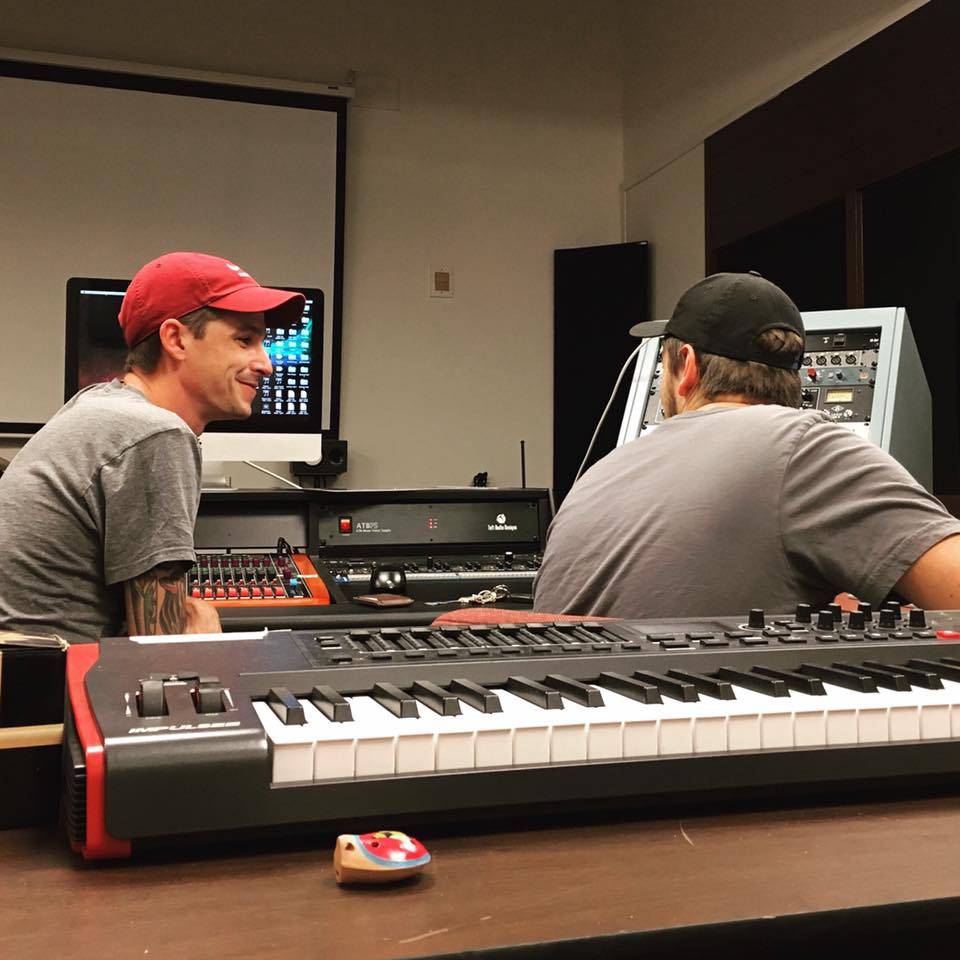If you are a musician and have lived in town for a while, you may recall that Parkland College offered a “Recording Studio” class for a number of years, taught my Mark Rubel out of his downtown studio, Pogo. With Rubel’s departure from the area several years ago, that particular chapter ended. The torch, however, has been picked up by Parkland Instructor and Faculty Advisor Adam Porter, who has spearheaded the creation of an on-site recording studio and classroom at Parkland, as well as the creation of a student-run record label, known as Perimeter Road Sound Recordings.
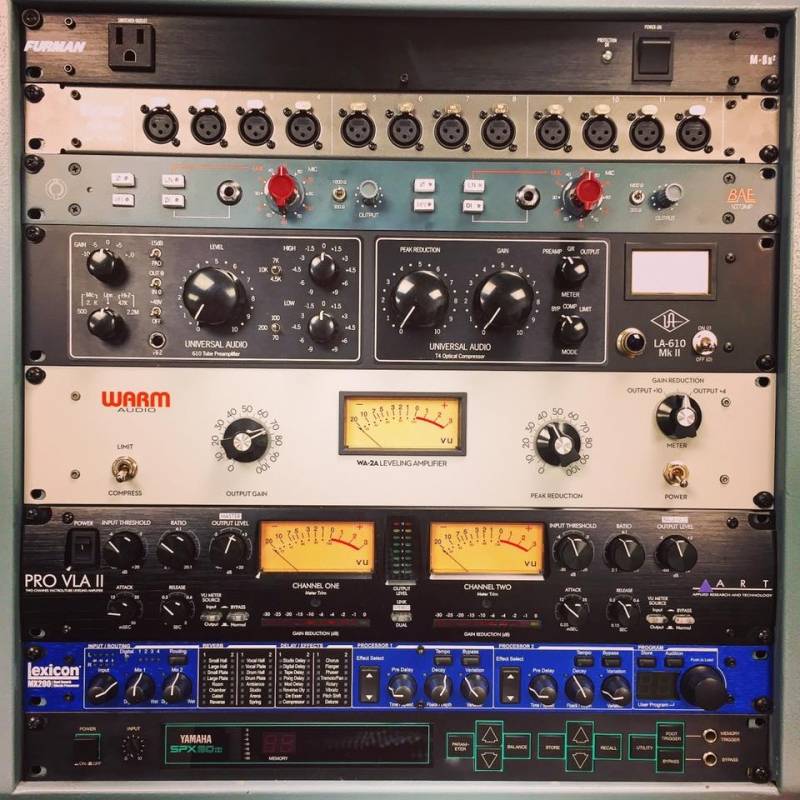
One of the core purposes of the Master Tracks series is to shed light on the various recording opportunities that our community has to offer, and which you may not be aware of. Perimeter Road offers a unique opportunity not only for local musicians seeking to record, but for aspiring engineers seeking to learn the craft, as well. Porter teaches two classes (Introduction to, and Advanced Studio Recording), and is a guiding hand in the annual signing, recording, mixing, mastering, and release of a local band. For the band, it’s completely free. For the student engineers, it’s an opportunity to get practical experience in a studio setting.
I met with the youthful, affable Porter at Parkland’s C140, where the studio is located. Three student engineers were in the process or recording an acoustic guitar performance, and Porter was assisting them with a signal path question. It was great. I wanted to enroll in the course, immediately.
Smile Politely: How’s everything going?
Adam Porter: It’s been a work in progress. We are piecing it together semester by semester. We started with a console and the desk, and the computer and ProTools, and a midi keyboard, and a few mics. Now we’ve got about 15-20 mics, and nice acoustic treatment, and we’ve been gathering instruments and amps and things along the way, you know.
All of these students are in my Intro to Recording Class, where they learn to record songs from scratch, and then we also use it for the record label, recording real albums, and releases.
SP: Tell me a little bit about the program.
Porter: This is my fourth year here at parkland as full time faculty. When I applied for the job, there were no recording classes here, there was no studio. I know a recording studio class had been offered here in the past, taught by Mark Rubel. Obviously a very talented guy who is recording at Blackbird now. He taught it at his own studio. That class went away when Mark left. I didn’t really know any of the ins and outs of that class, or the history behind it. When I interviewed for the job, I said, “One thing I would really like to do is build a studio and teach some recording classes, because that is my real passion.” They seemed super excited about that. When I started here, the very first year I developed the Intro and Advanced classes, and I ran it through the curriculum committee and all of that stuff, and it all got approved. So this is the third year I’ve been teaching it. The first semester, the studio was kind of a work in progress, and I just keep building on it. I apply for grants every semester, and just keep adding equipment.
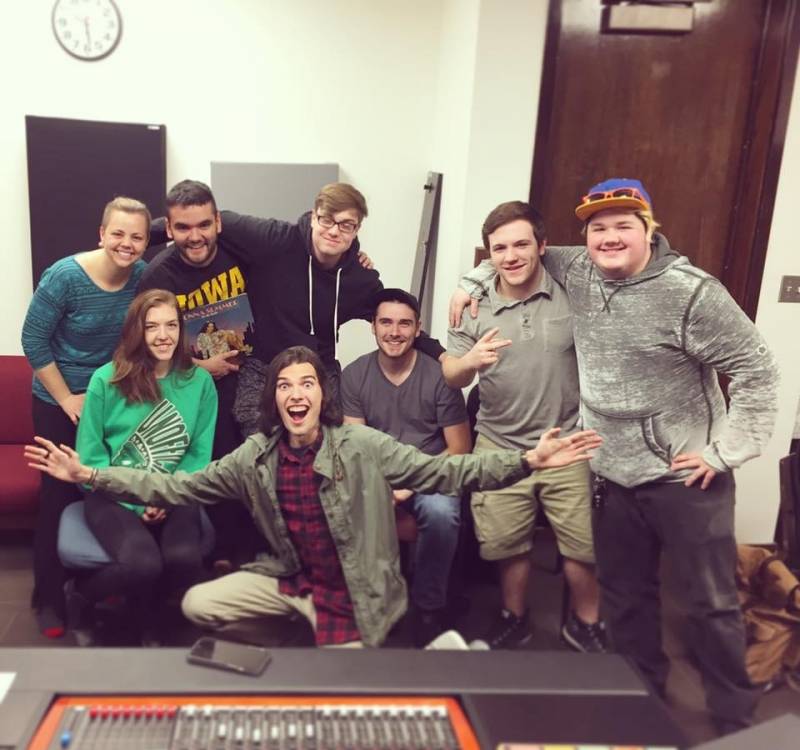
SP: So, Room C140 is the home for the whole operation?
Porter: Yes. This is where I teach all of the recording classes, and where we do all of the label stuff as well. I integrate mixing and mastering into the Intro and Advanced classes, so they’re part of the curriculum. So not only are students learning basics like signal flow, mic technique, and all of the critical things related to using protools and all of that, but then, you know, taking it beyond that and talking about mixing techniques. How do you take those good recordings and turn them into a finished song, you know? It’s all integrated into the class. Beyond that, this idea of a student staffed record label kind of came from when I was at SIU. There was a student staffed label there called Digital Dog, but the focus there was more on putting together music festivals. Every year they would put on a big festival with local acts, which was very cool, but I always wished that we would sign bands and release albums. That was my vision for how cool that could be as a student initiative at a college. So that was another thing when I came that I really pushed for. We are in the start of our 3rd year for Perimeter Road, which is the student staffed record label.
SP: How does a band get signed to the Perimeter Road label? Do they need a Parkland connection?
Porter: Good question. It’s kind of a work in progress, but we are on a pretty cool semester by semester schedule now, where every semester we record a new album. While we are doing that, we mix, master, and release the album we recorded the semester before. The way we have ran it so far is that in the Fall we sign a band, and that can be any band; they don’t have to be Parkland students. The Inn Keepers weren’t Parkland students, for example. They were the first band we signed, and we recorded an EP for them, called, Didn’t Think I’d Get This Far. That was our first release. So, you know, we recorded them that first semester. The following semester we released that album, and then we started recording our next project, which was a compilation album, and this was Parkland students. The idea was that every year, “Why don’t we sign a band and do an album for them, but also every year, we’d do this kind of compilation of talented Parkland student musicians, because there are tons of them here?” So that ended up being super cool. We put out Volume 1 two semesters ago. We are finishing up the recordings for Volume 2 now, so we will be releasing that next semester. Basically the way that we are running it is that every two semesters we are going to be releasing a signed band album and a Parkland student-musician album.
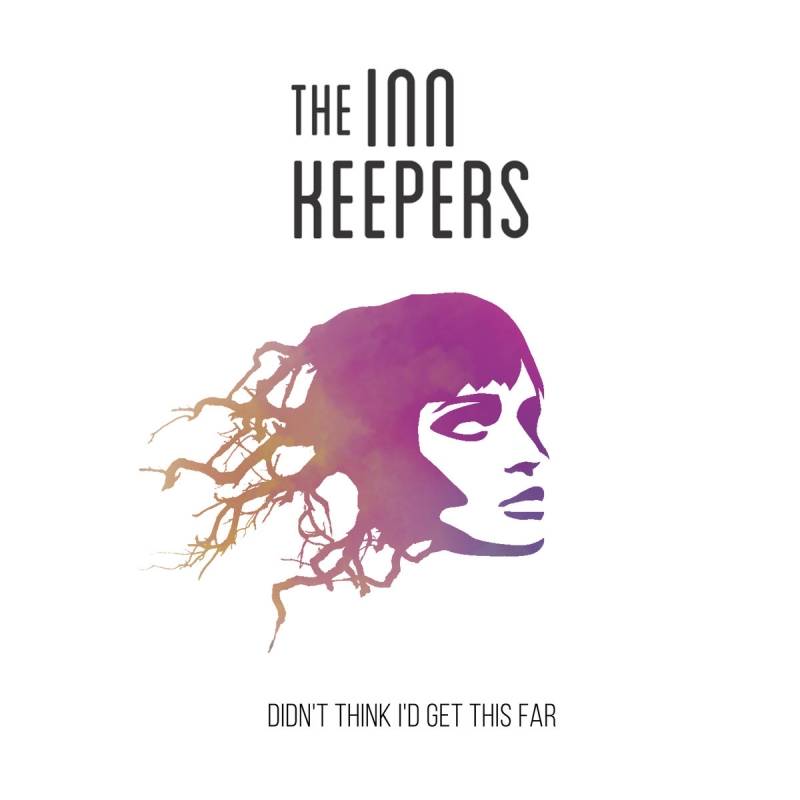
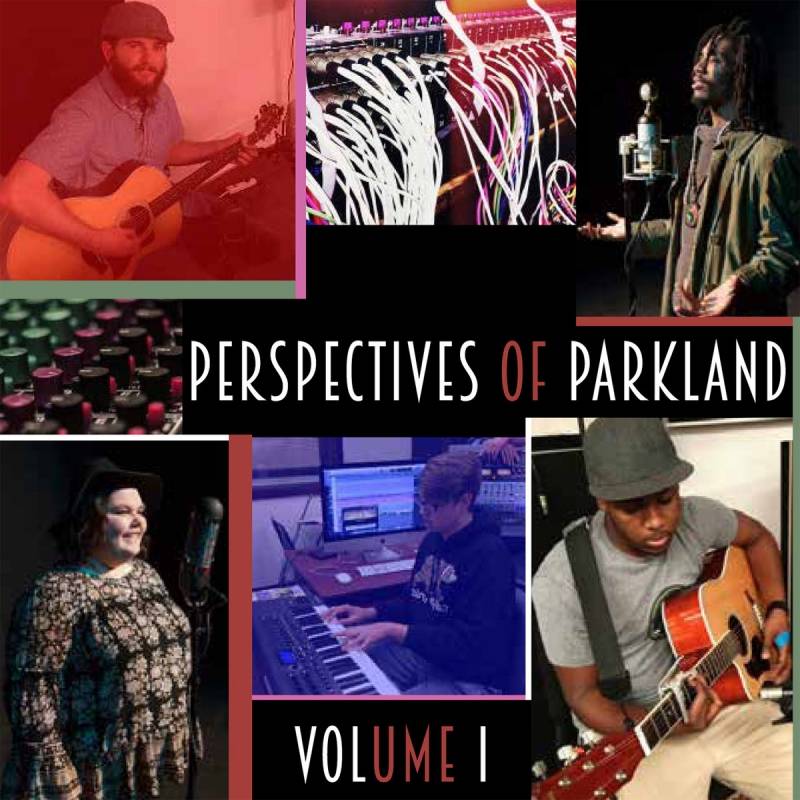
SP: Is all the engineering done by the students?
Porter: That’s correct. I’ve got some students here who have been doing this for a few semesters with me. I even have a couple who have been with me from the start and are still here. So for instance, this semester the lead engineers for everything we’ve been doing are my advanced students. The point of this space is to give students real world experience while they are still in college, right? So taking it beyond a class project, and being able to put your name on a real album that you put tons of time and effort into is a lot of added value for a student who is interested in media and recording.
SP: How does a band get signed to the label?
Porter: Basically, we put a call out for bands when we are getting ready to sign a new artist. That will be coming up very soon later this semester, because we will be looking to sign a new artist at the start of the Spring.
SP: When you bring a band on, are they signed for one album release, only?
Porter: That’s the way we’ve been doing it so far. Since it’s a college label, and since it’s kind of a recurring thing, with new students every semester, the idea of like, being a label where we are building this roster, and continuing to put out stuff for the same bands might be a little too much for us to take on. So our thought is to approach it is: we are going to record, mix, and master an album for you for free. But after that, we are going to send you on your way, and hope that you flourish, and get signed to a bigger label. So we are definitely trying to provide a quality place for people in the community, where they can come in and be recorded, but the primary objective more than anything else is the student experience.
SP: One question I am always curious to ask engineers is whether they have a philosophical bent towards a more raw sound, or towards a more controlled, polished sound. Obviously, this is a different question for you, because you are teaching student engineers rather than handling the recording itself.
Porter: That’s a really good question. That’s something that we talk about a lot.nI would say generally speaking I go for the tight, controlled environment. I like to have control over the space that I put my vocalists in. If I get too much room noise on a vocal, then I’m stuck with that room. I would much rather have a dead vocal and then control the reverb myself. When I work for a typical rock band, I would probably do drums and bass first, and I’d have a lot of mics on the kit, and I’d have it nice and isolated, and then we would carefully overdub each part and build it that way. Now, I love a good live recording, and there is something about the emotion of a song that was recorded with everyone in the room together. The room that we have is not the best room for a whole band to be playing and recorded at the same time, so the limitations on the space that we have here leads me to teach them more isolated techniques, because it works better in our studio.
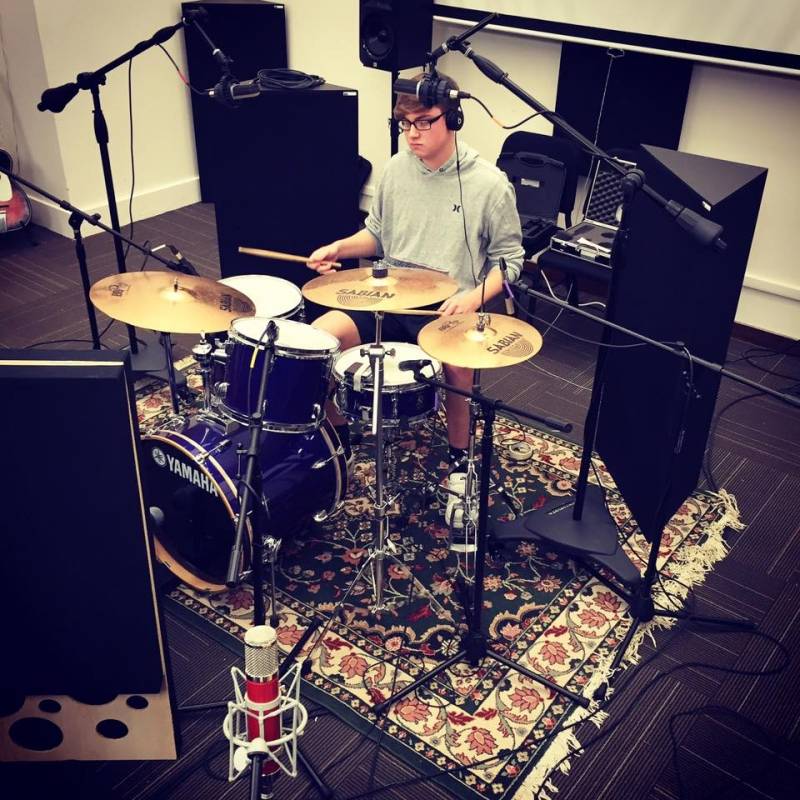
SP: How did you get interested in recording?
Porter: I have been playing around with recording music since I was a teenager. I never was formally taught until I went to college, so I learned as I went, but I got to a point where I wanted to know what I was doing right and what I was doing wrong, and get some more solid knowledge and education related to recording, because my ultimate goal was to move to California and work in a studio or media.
I went to SIU. I got a bachelor’s there in Media. But the most important thing there was that I got to work nights in the recording studio there. So as an undergrad, I started helping students with their projects, right? And I was like, “Wow, this is really cool.” I continued with grad school at SIU. I got a masters in Professional Media, which allowed me to teach the recording classes as a grad assistant. Those two years solidified my role, that where I fit into these equation, that what I have to offer is teaching people who have a passion for this what they need to know to go out into the world and become an engineer. I have some students who have already gotten jobs at studios as engineers, or they are doing live sound, based on the experience that they got here.
So, I finished the Master’s degree at SIU. I was living in Carbondale, doing freelance recording there. Then I got a job at Wabash Valley College, down in Mt. Carmel. I taught there for a couple of years, teaching Radio and Audio Production. I was also in charge of the college radio station. I was doing as much recording as I could, but that was a lull period of time where I was so busy with my job, and I was in a new town, where I didn’t know anybody, and I was really yearning to get back into it, and then this job came up. This totally is my dream job. Beyond that, I’ve got 4 kids, so that keeps me busy on a whole other level.
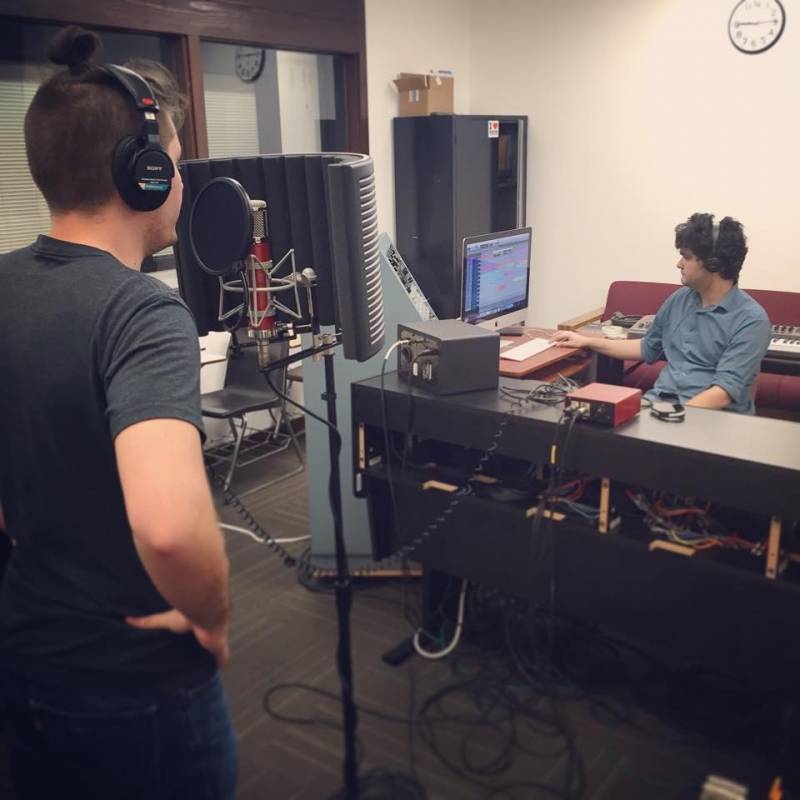
SP: Got it. So what is coming out next on the label?
Porter: We just released an album last week, by The Dystopians. That was the second band that we signed. When we signed them, they were actually seniors in high school, which we didn’t know when they submitted. We just really liked their music.
SP: Are they locals?
Porter: They are from Danville. Actually, after their experience recording with us last semester, all three of them ended up enrolling in our program, so they are all students at Parkland now. We just released their album, and it’s called Perceptions of the Spectrum. It’s 8 tracks, in that weird range between an EP and an LP.
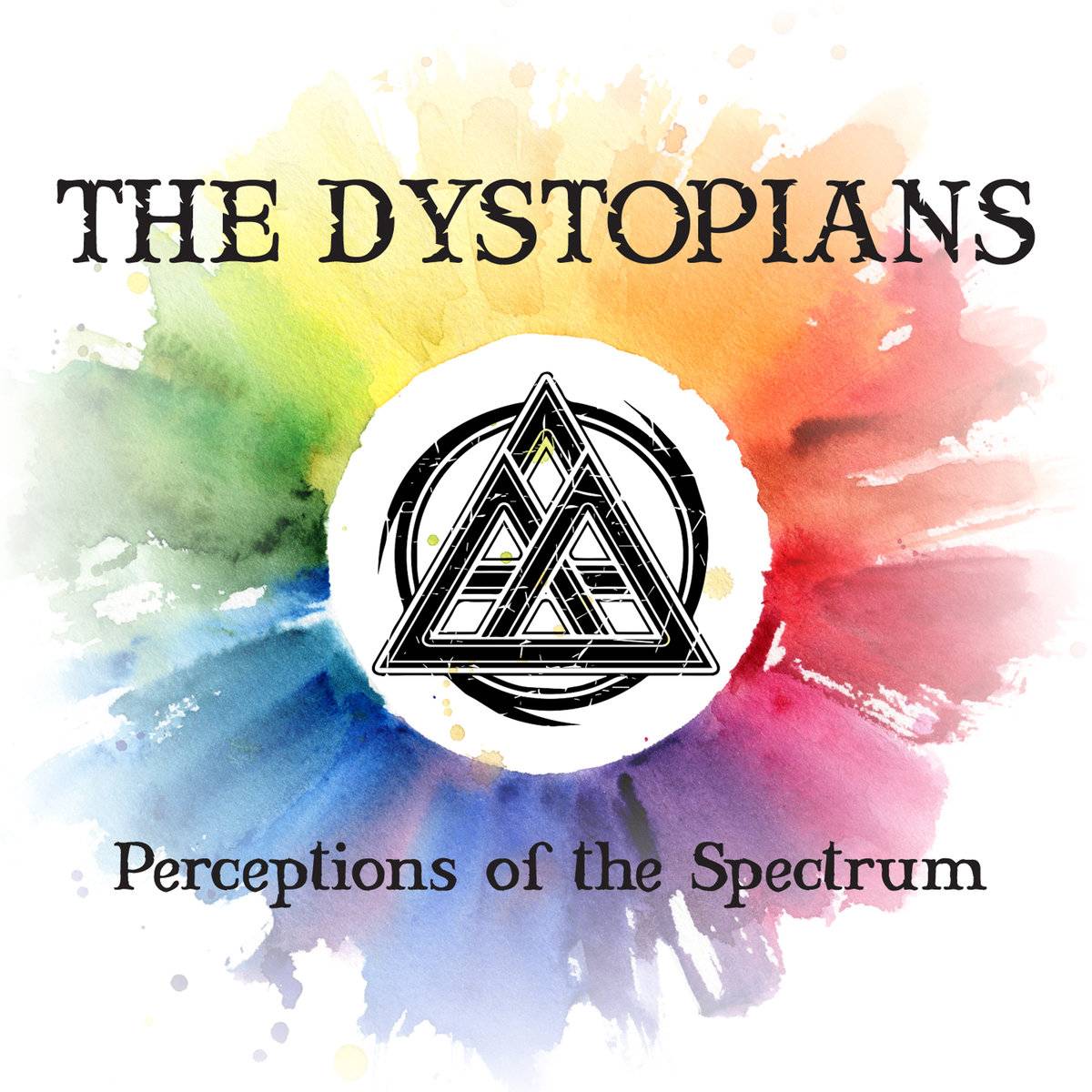
SP: The Dystopians are a bit heavier, right?
Porter: It is. There are a couple songs that are rock, some I would call metal. Some are more chill. But overall, it is heavy. Definitely heavier than The Inn Keepers.
SP: Does Perimeter Road have a “sound?”
Porter: I would hope not. I would like us to be as diverse as possible. I don’t want to just sign rock bands, you know. I’m up for whatever. We have no limitations on genre, style, or anything like that. We just want to record good music.
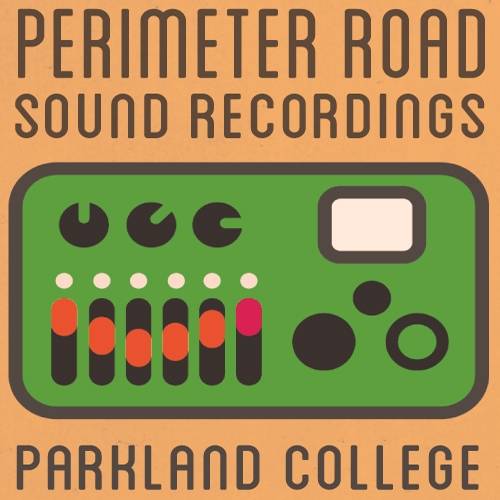
Perimeter Road Sound Recordings is presently accepting artist submissions. If selected, the musician or artist would get to record an album in the Spring of 2018 for free. Submissions can be sent to [email protected] or [email protected].
All images and photographs provided courtesy of Adam Porter.








